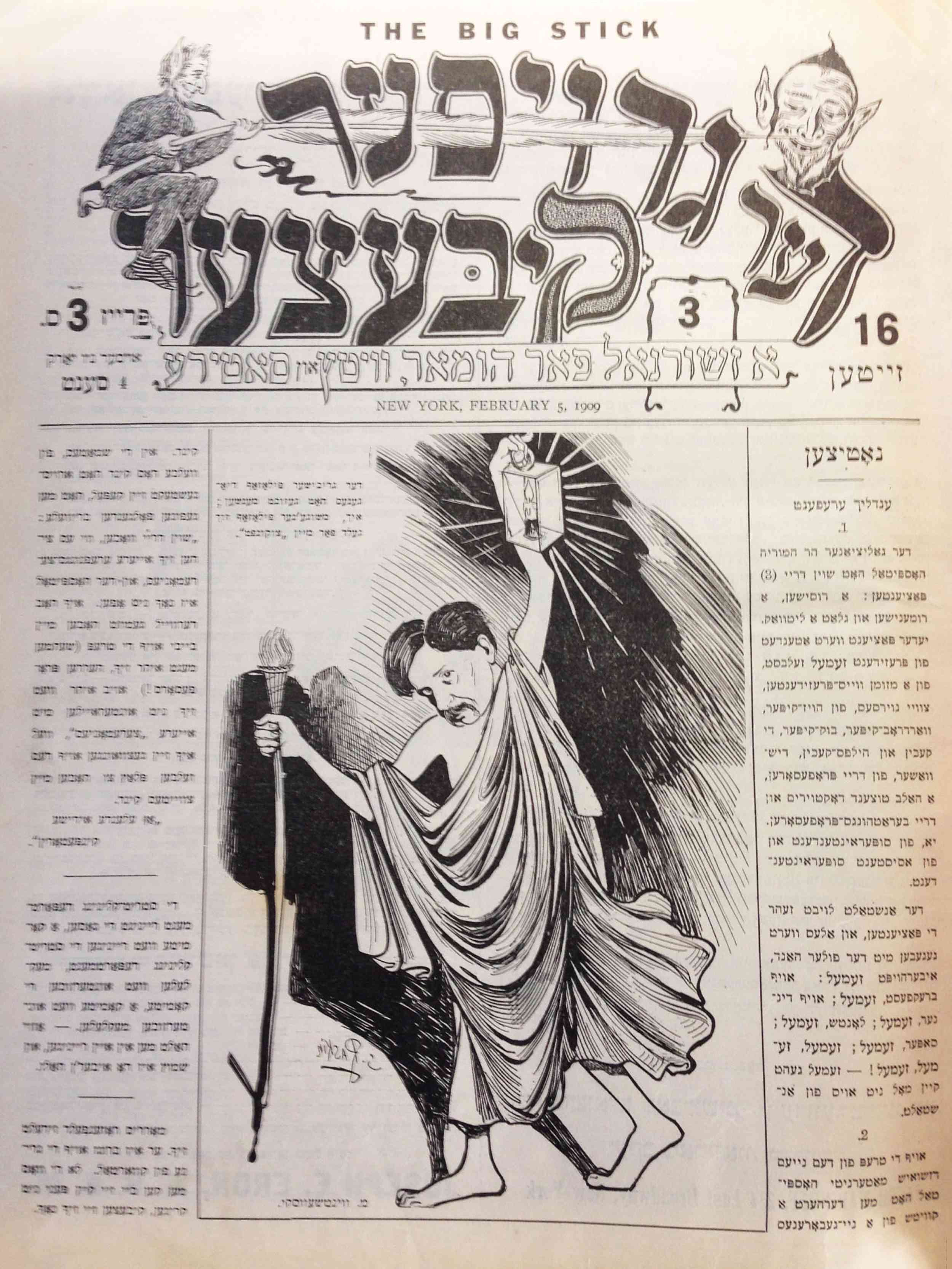The Meshuggener Philosopher and the Crippled Shlimazl: Satire in the Anarchist Yiddish Press

|
Max Weinreich Fellowship Lecture in American Jewish Studies
The Rose and Isidore Drench Memorial Fellowship and the Dora and Mayer Tendler Endowed Fellowship in Jewish Studies Admission: Free |
The forefather of Yiddish socialist-proletarian poetry, Morris Winchewsky, better known as Der meshugener filosof, or ‘The Crazy Philosopher,’ was in great demand not only for his poems but for his satirical writings as well, most of which published in the London-based Yiddish anarchist weekly, the Arbeter fraynd. His satirical alter-ego, Der meshugener filosof was a figure simultaneously deriding both Jewish and non-Jewish authorities, poking fun at Jewish canonical texts and ridiculing the affluent. His own comrades, anarchist and socialist activists, were oftentimes surprised to find themselves the targets of what seemed his all-encompassing lampooning wit.
The emergent Yiddish anarchist press of the 1890s often took its cue from Winchewsky’s writings. David Edelshtadt, the poet laureate of the Yiddish anarchist movement, adapted Winchewsky’s literary techniques for use in his own acrimonious pieces, published in the New York based anarchist weekly, Di fraye arbeter shtime, caricaturing socialists, Yiddish poets, and the Jewish religious authorities alike. Edelshtadt’s satirical pieces spurred in turn the publication of a series of humorous poems both by Winchewsky and by Morris Rosenfeld, the most celebrated Yiddish proletarian poet of the time.
The other and no less important anarchist satirist of the day was David Apotheker. He became a landmark figure in the anarchist press with his vitriolic articles and feuilletons appearing weekly, himself serving as the editor of several satirical publications, including Der kibetser and Der groyser kundes. Apotheker’s literary activities shed light on the Yiddish–anarchist movement’s critique of American social and political reality, as well as its critique and parody of itself. Apotheker’s literary achievements were significant in the formulation of what he believed to be “Jewish humor.” This presentation endeavors to elucidate the crystallization of a distinct Yiddish anarchist satire towards the end of the 19th century, within the broader cultural context of (radical) Yiddish literature.
About the Speaker
Binyamin Hunyadi is a graduate student in the Mandel School for Advanced Studies in the Humanities. His dissertation, The Emergence of Anarchist Literature and Press in Yiddish, 1890-1918, proposes to delineate the history of the Yiddish anarchist movement and its literary production in a trans-national context. In 2015 he completed his Master's degree in the joint Yiddish program of The Hebrew University of Jerusalem and Tel Aviv University. Prior to that, he completed a second M.A. thesis during his studies in the University of Budapest, in which he considered questions pertaining to the first ultra-orthodox Yiddish journal, Amud ha-Yira edited by R. Akiva Yosef Schlesinger.His field of interests covers a wide array of subjects ranging from the history and culture of the Austro-Hungarian Empire, to topics in Yiddish culture and literature. He is currently the recipient of YIVO’s The Rose and Isidore Drench Memorial Fellowship and the Dora and Mayer Tendler Endowed Fellowship in Jewish Studies.




